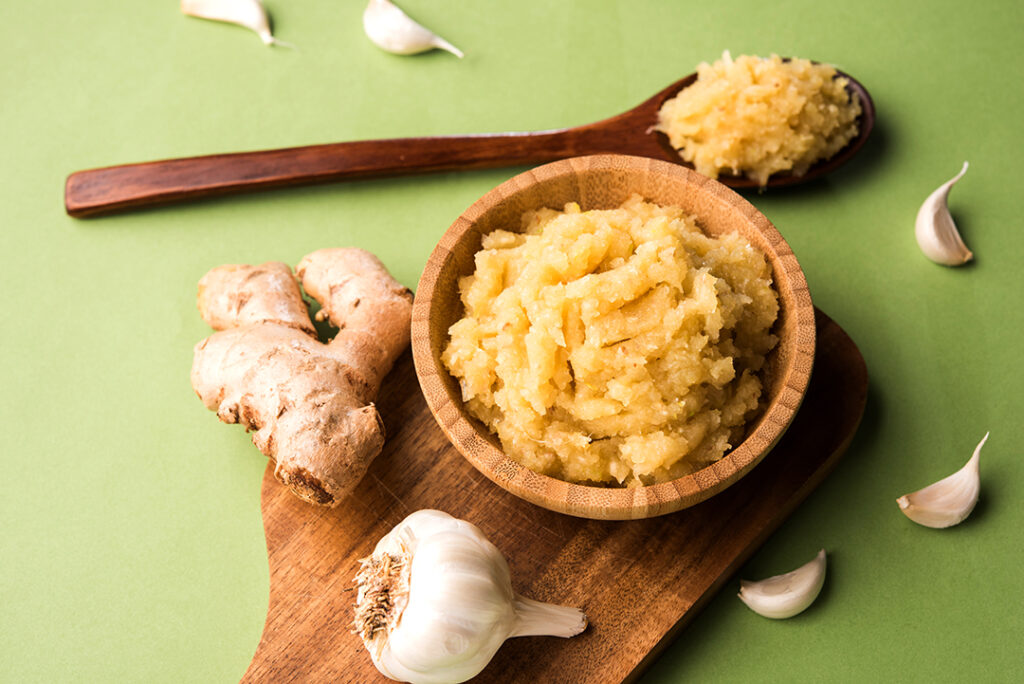Quality dietary supplements for immune support help fill any gaps in your nutrition and protect you from illness and disease.
Your immune system is your body’s personal army. It’s always on guard, working day and night to protect you from illness, injury, and disease.
But just like any army, it needs certain types of fuel to stand its ground and keep you protected. While you can get many of the nutrients your immune system needs, sometimes you need to call in for backup from vitamins and supplements.
Supplements help fill in nutritional gaps and fortify your immune system’s defenses. Read on to find out which nutrients your immune system needs most, and how to reach your optimal levels with high-quality, effective supplements.
A Quick Look at the Immune System

When you think of your immune system, you may think of tiny white blood cells flowing through your blood and attacking germs. While that is a key part of immunity, the immune system is much more complicated in reality!
Your immune system is a complex network of cells, tissues, and organs that work together to defend your body against harmful invaders like bacteria, viruses, and other pathogens. When they spot a potential threat, they spring into action, neutralizing it before it can cause any trouble.
White Blood Cells, Lymphatic System & Beyond
At the heart of this system are white blood cells, also known as leukocytes. These cells circulate in the bloodstream and lymphatic system, ready to respond to signs of infection. There are different types of white blood cells, each with a unique role. For instance, macrophages are like the body’s cleanup crew, engulfing and digesting invaders, while lymphocytes, such as B cells and T cells, are like the special forces, targeting and destroying specific pathogens.
But beyond white blood cells, your lymphatic system, liver, gut, and even skin are key parts of maintaining a strong immune response. In fact, between 70-80% of immune cells live in the gut, which is one reason why diet and supplements are so important for maintaining a strong immunity.
Vitamins & Minerals Role in Immune Function
To keep the immune system running smoothly, your body needs a variety of vitamins and minerals. Vitamin C, for example, is a powerful antioxidant that helps protect your cells from damage and supports the production of white blood cells. Vitamin D, a.k.a. “The sunshine vitamin,” is crucial for activating those white blood cells and enhancing their pathogen-fighting abilities. Minerals like zinc are also essential, as they play a key role in cell signaling and the proper functioning of immune cells.
When your body is well-nourished with these essential nutrients, your immune system can function at peak performance. You’ll avoid issues like the common cold, wounds will heal quickly, and you may even escape chronic illnesses.
So, which nutrients are necessary for a well-functioning immune system?
12 Vitamins, Minerals, and Supplements for Optimal Immunity

1) Vitamin C
Vitamin C is a water-soluble vitamin and a potent antioxidant. It helps protect your cells from damage, supports the production of collagen, and enhances the absorption of iron from plant-based foods. This is one reason why you’ll find vitamin C infused in many skincare and anti-aging products.
But, vitamin C is first and foremost a powerful immune booster. It stimulates the production and function of white blood cells – especially phagocytes and lymphocytes, which help protect the body against infections.
On Your Plate: Get your daily vitamin C by eating citrus fruits (oranges, lemons, grapefruits), strawberries, bell peppers, spinach, kale, and broccoli.
In a Supplement: If you find it challenging to get enough Vitamin C through diet alone, a supplement can help. Look for a high-quality Vitamin C supplement with forms such as ascorbic acid, sodium ascorbate, or calcium ascorbate. Aceva’s Active-C is a great choice, as it contains vitamin C along with powerful antioxidants, bioflavonoids, and superfood powders that increase absorption in the body.
The recommended daily amount for adults is 65-90 mg per day, with an upper limit of 2,000 mg per day to avoid potential gastrointestinal discomfort.
2) Vitamin D
Vitamin D is a fat-soluble vitamin that is best known for its role in bone health. Without vitamin D, we can’t absorb the calcium needed to strengthen our bones. But, vitamin D has many other benefits, including mood balance, skin health, and immune health.
Vitamin D is essential for your immune system because it helps activate and regulate the cells that fight off infections. It makes these cells more effective at attacking and destroying harmful invaders (like viruses or bacteria). Vitamin D also helps control the immune response, reducing inflammation and preventing the immune system from overreacting (as in autoimmune diseases).
On Your Plate: The best source of Vitamin D is not food, but sunlight; your skin produces Vitamin D when exposed to UV rays. But, you can get some vitamin D from fatty fish (salmon, mackerel, sardines), fortified dairy products, mushrooms, and egg yolks.
In a Supplement: Vitamin D deficiency is common, especially during the fall and winter months or in those who get limited sun exposure. In these cases, using a Vitamin D supplement can be a simple way to fill in the gaps and support your immunity. Vitamin D3 is the best form for supplements as it’s more easily absorbed by the body. Ideally, your vitamin D supplement will also contain vitamin K2, as in Aceva Active-D.
The recommended daily intake varies, but generally, 600-800 IU for adults is suggested, with some recommendations going up to 1,000-2,000 IU for optimal health.
3) Zinc
Zinc is not a vitamin, but an essential trace mineral. Zinc is used in many different biological functions, including enzyme function, protein synthesis, and cell division. Basically, it helps maintain our body’s integrity and optimal functioning.
In the immune system, zinc plays a crucial role in the development and function of immune cells like neutrophils and natural killer cells. Neutrophils are the first responders that rush to the site of an infection to “neutralize” harmful pathogens. Natural killer cells, on the other hand, are essential for identifying and eliminating virus-infected cells and tumors.
Zinc also supports the production and function of other important immune cells, such as T cells and B cells. These help regulate the immune response and maintain effective communication between cells. By supporting these cells, zinc helps the immune system detect, respond to, and eliminate a wide range of threats to the body.
On Your Plate: Meat, shellfish, legumes (chickpeas, lentils, beans), seeds (pumpkin, sesame), nuts, dairy products, eggs, and whole grains are great dietary sources of zinc.
In a Supplement: Zinc supplements come in various forms, including zinc gluconate, zinc acetate, and zinc sulfate. When it comes to choosing the best form of zinc supplement for immune support, focus on zinc gluconate and zinc acetate. These forms are typically well-absorbed by the body and have been shown to be effective in supporting immune function.
For immune support, a daily intake of 8-11 mg for adults is recommended, but during the cold and flu season, short-term higher doses (up to 40 mg per day) can be helpful for prevention.
4) Elderberry

If you peruse the cold and flu aisle at your local pharmacy, you’re bound to find products made with elderberry. And for good reason. Elderberry is packed with antioxidants and vitamins that have been shown to support your respiratory and immune system. It’s known for its ability to fight inflammation and infections, particularly viral infections like the common cold and influenza.
On Your Plate: Did you know you can eat elderberries? If you can find them, they are delicious as a syrup or in healthy baked goods. If you can’t find the berries themselves, you can look for premade syrups or teas to enjoy or cook with.
In a Supplement: Elderberry supplements are popular during the cold and flu season. You can easily come across syrups, gummies, and capsules.
The typical dosage for immune support is 1-2 tablespoons of elderberry syrup per day or as recommended on the product label.
5) Echinacea
Echinacea is a popular herbal cold remedy known for its immune-boosting properties. Like many of the nutrients highlighted here, it helps stimulate the production of white blood cells, which strengthens the body’s ability to fight off infections. Echinacea is particularly effective in reducing the severity and duration of respiratory infections like colds and flu.
On Your Plate: You can find echinacea teas, tinctures, and extracts – all of which are made from the roots and leaves of the plant. If you have a garden, why not plant echinacea flowers and make your own immune tincture come fall?
In a Supplement: Echinacea supplements come in various forms, including capsules, tablets, and liquid extracts. Choose the form that fits your lifestyle best!
6) Quercetin
Quercetin is a flavonoid (a plant compound) with potent antioxidant properties. It has anti-inflammatory and antiviral benefits, making it a key nutrient for immune support. Quercetin helps modulate or balance immune function by slowing the production of pro-inflammatory cytokines.
Quercetin also helps enhance the activity of certain immune cells, like macrophages and natural killer cells. By supporting these cells, quercetin not only helps prevent infections but also reduces the severity and duration of respiratory illnesses when they occur.
On Your Plate: Eating a colorful diet can help you get more quercetin – it’s commonly found in apples, onions, berries, broccoli, citrus fruits, and grapes.
In a Supplement: If you’re worried about your quercetin levels, you can often find quercetin supplements in capsule or liquid extract forms. Try to pair your quercetin intake with vitamin C, as that can improve absorption and benefit the immune system even more.
A typical dosage ranges from 500 mg to 1,000 mg per day.
7) Garlic

Love that garlicky flavor? Good news – garlic is a powerful immune booster, making it the perfect ingredient for your fall and winter dishes. In fact, garlic has been used for centuries for both its culinary and medicinal properties. It contains compounds like allicin, which have antimicrobial and immune-boosting effects. Garlic also enhances the immune response by stimulating the activity and efficiency of white blood cells.
On Your Plate: Fresh garlic cloves are the best way to enjoy the immune-boosting benefits of garlic. Crushing or chopping garlic activates its beneficial compounds, so why not make a garlic bean dip, roasted garlic carrots, or 40 garlic-clove chicken?
In a Supplement: If you’re not a fan of garlic (or garlic breath), supplements are a good alternative. Look for aged garlic extract supplements, which are odorless but keep all the beneficial compounds. A typical dose ranges from 600-1,200 mg per day.
8) Turmeric
Turmeric is a treasured spice that adds warmth and a golden hue to anything you cook with it. It is also a powerful antioxidant, immune-booster, and inflammation-reducer. This is all thanks to its active compound curcumin, which has powerful anti-inflammatory and antioxidant properties. Curcumin also modulates the immune system by influencing the activity of immune cells and reducing the production of inflammatory molecules.
On Your Plate: Fresh turmeric root and ground turmeric spice can both be used to pack an immune-boosting punch to your favorite recipes. Try it in curries, stir fries, smoothies, oatmeal, and even lattes! Just remember to add a pinch of black pepper, which enhances turmeric’s absorption.
In a Supplement: You can find curcumin supplements which often include black pepper extract (piperine). For a more well-rounded approach, try Aceva Mobility. It contains a potent blend of turmeric, Bioperine® Black Pepper, ginger, and other anti-inflammatory herbs to support immune function and joint health.
9) Ginger
Ginger is another medicinal herb that has been shown to have both anti-inflammatory and antioxidant properties. It supports the immune system by reducing inflammation, which can help the body fight off infections more effectively. Additionally, ginger has antimicrobial effects, which means it can directly combat harmful bacteria and viruses.
On Your Plate: Fresh ginger root has a lovely vibrant flavor. It can be used as an ingredient in your favorite recipes (sweet or savory) or brewed into tea. Dried ginger can also be used, and has a warmer, spicier quality.
In a Supplement: Ginger supplements are available in various forms, including capsules, extracts, powders, and even chews. For immune support, a typical dose ranges from 250 mg to 1,000 mg per day, depending on the product and individual needs.
10) Green Tea
Want to boost your immune health effortlessly? Swap your morning coffee with a green tea.
Green tea is packed with antioxidants, particularly catechins, which have powerful immune-boosting properties. These antioxidants help protect your cells from damage and support the immune system by enhancing the function of immune cells and reducing inflammation.
Not to mention, green tea also contains compounds like L-theanine which can help relieve stress and boost metabolism.
On Your Plate: Drinking green tea is the best way to reap its benefits. Matcha, a powdered form of green tea, is particularly high in antioxidants. It can be used in various recipes – from teas and lattes to smoothies to muffins!
In a Supplement: If you don’t want to drink your green tea, green tea supplements can be found in capsules, tablets, or extracts. A typical daily dose ranges from 250 mg to 500 mg of green tea extract. Look for supplements standardized to contain a high percentage of catechins or EGCG (epigallocatechin gallate), the most potent antioxidant in green tea.
11) Omega-3 Fatty Acids

Healthy fats are our body’s protective buffers. Omega-3 fatty acids, particularly EPA and DHA, have potent anti-inflammatory effects that heal cellular damage, reduce inflammation, and support the health of cell membranes. These healthy fats also regulate and balance the immune system by preventing excessive inflammatory responses, which can lead to chronic diseases.
On Your Plate: Fatty fish (salmon, mackerel, sardines), flaxseeds, chia seeds, and walnuts are healthy foods rich in omega-3s.
In a Supplement: Omega-3 supplements are available as fish oil, krill oil, or algae oil (for a plant-based option). A typical dose ranges from 250 mg to 1,000 mg of combined EPA and DHA per day, depending on dietary intake and individual needs.
12) Probiotics
Remember when we said that 70-80% of your immune cells live in the gut? Because of this, taking good care of your microbiome is all part of supporting your immune system. One of the best ways to do that is with probiotics.
Probiotics are live beneficial bacteria that support your gut by maintaining a thriving, diverse microbiome. They also maintain a healthy balance of gut microbiota, enhance the barrier function of the gut, and keep the immune response in check.
On Your Plate: Fermented foods like yogurt, kefir, sauerkraut, kimchi, and miso are packed with probiotics. Try to eat something fermented every day to boost your gut and immune health.
In a Supplement: Probiotic supplements have become very popular, but they vary widely in strains, potency, and effectiveness. Look for a research-backed multi-strain product with at least 10-20 billion CFUs (colony-forming units) for general immune support. Aceva’s Ultrabiotic is a go-to probiotic, containing only premium, active strains that have been shown to improve digestive health and support immunity.
Tips for Embracing an Immune-Boosting Lifestyle

Supplements are a great way to help fill in nutritional gaps and give your immune system the extra TLC it needs to keep you healthy. But, they can’t replace the benefits of a healthy diet and lifestyle.
Your overall well-being and immune strength rely heavily on your everyday habits and choices. Here are a few tips that will help you create a lifestyle that puts your health and immunity first:
Eat a Balanced Diet
You are what you eat! Many of the supplements above are readily available as foods – and you should try to get their benefits as foods before you reach for the supplements.
Beyond using the immune boosters above, try to eat a colorful diet rich in fruits, vegetables, whole grains, lean proteins, and healthy fats. This will naturally provide your immune system with the essential nutrients it needs to function optimally. Simply preparing most of your meals at home and limiting processed foods will make a huge difference in how nutritious your daily diet is.
Stay Hydrated
Water is crucial for every system in your body, including your immune system. Staying hydrated helps your body produce lymph, which carries white blood cells and other immune system cells. Aim to drink at least 8 glasses of water a day. Herbal teas and water-rich fruits and vegetables, like cucumbers and watermelon, can make staying hydrated more fun.
Get Regular Exercise
Of course, we know that regular physical activity helps boost your overall health and keeps you fit. But did you know that reducing your risk of chronic diseases and strengthening your immune system? When you move, your immune system thrives. Exercise increases blood circulation, which allows immune cells to move more freely and do their job more effectively.
Aim for at least 150 minutes of moderate aerobic activity or 75 minutes of vigorous activity each week, along with muscle-strengthening exercises twice a week. Find activities you enjoy, whether it’s walking, cycling, swimming, or dancing, to make it a fun part of your routine.
Prioritize Sleep
Quality sleep is vital for a strong immune system. During sleep, your body repairs and regenerates, and your immune system releases proteins called cytokines that help fight infection and inflammation. Try to get at least 7-9 hours of sleep per night. Need help settling into a sleep schedule? Try these simple tips…
Manage Stress
Chronic stress is one of the immune system’s biggest foes. Besides making you tired and irritable, it also makes you more susceptible to illnesses. Incorporate stress-reducing activities into your daily routine, such as mindfulness meditation, deep breathing exercises, yoga, or spending time in nature.
Get Fresh Air and Sunlight
Did you know that spending time outdoors and getting natural sunlight can boost your mood and your immune system? Sunlight helps your body produce Vitamin D, which we learned is crucial for immune health, and studies show that time spent in nature significantly reduces stress and improves immunity. Aim for at least 15-30 minutes of sunlight exposure a few times a week, and consider taking your workouts outside!
Maintain Good Hygiene
Last but not least, practice good hygiene! Your immune system will function better when it’s not constantly bombarded by germs and toxins to fight off. Wash your hands frequently with soap and water, especially before eating and after using the restroom. Avoid touching your face, and keep your living spaces clean. During the cold and flu season, consider carrying hand sanitizer for situations where washing your hands isn’t possible.
Functional Lab Testing: Immune Insights Individualized to You

Supplements are a simple and effective way to bolster your immune defenses. But, they aren’t the only thing you need to take good care of your immune system. Supplements can help fill in the nutritional gaps and provide an extra boost when needed, but they work best when combined with these healthy lifestyle habits.
Perhaps the most impactful factor in your immune health is what’s on your plate. Your diet choices can either hurt or hinder your immune response – and so many other aspects of your health.
If you’re unsure what types of foods you should eat, what nutrients you may be lacking, or how to support your body best through diet, consider exploring functional nutrition from AlignLife. This includes diagnostic lab testing and supplement recommendations that provide personalized insights into your unique nutritional needs based on your body’s own data – not a cookie-cutter nutrition formula. That means you’ll learn exactly what your body needs to heal, thrive, and function at its best.
Ready to try functional nutrition and find the best diet and supplements for you? Reach out to your local AlignLife Center today to start your path to robust and resilient immunity!



